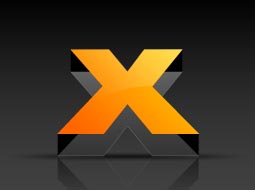Bound
Bound
Bound
Bound
Bound
version 1.01
version 1.01
version 1.01
version 1.01
version 1.01
Documentation
Have you ever used a DirectX plugin, and had it introduce some really wild volume spikes, at loud levels? This could potentially be caused by the plugin not actually bounding the data correctly. Sometimes plugin developers don't check the output value from their plugins, and give a value greater than what is acceptable; for example, you can think of an audio signal being from -1 to +1, 0 being the 0-crossing point. Now, what does your audio program do when it get's a value of 1.5? Since this floating point value almost always gets brought back down to an integer when output, this would become basically -0.5 (since anything above 1 would be wrapped back to -1). Obviously this isn't a desirable effect, and it's very difficult to correct. If you have a plugin that does this, or suspect that it might, you can use AnalogX Bound to force it's usable range!
You have two sliders available to you, one which sets the maximum value for any sample being passed through, from 0 to 1... This simply clamps a value to this limit, so if you have it set to 1.0, and got the value of 1.5 from the above example, it will just clip it to 1.0. Please note that this will introduce distortion when it clips the value, but this is MUCH preferred over having a wrapped value. Normally you won't want to set this to anything but 1.0, unless you want to intentionally introduce clamping distortion. In this case, you will probably want to amplify the output signal, so I added a gain as well.
The only way this plugin will work is if the program you're using allows you to chain plugins so they are all processed at the same time, similarly to how one might use BitPolice. Use the other plugins just like normal, and then insert Bound as the very last effect, this way it can bound the data before it gets back into the application.
In order to use this plugin, you must have DirectX 6 or greater installed, as well as DirectX Media. You must also have a DirectX audio-compatible music application (like Paris, WaveLab, Cakewalk, etc) installed in order to use the plugin. It works with either a mono or stereo stream, at either 16bit or 32bit.
Last updated on Tuesday, March 9, 2021 12:24:44 PM PST. AnalogX trade is a registered trademark of AnalogX, LLC. All other trademarks are the sole property of their respective owners. All contents copyright ©1998-2009, AnalogX. All rights reserved.

